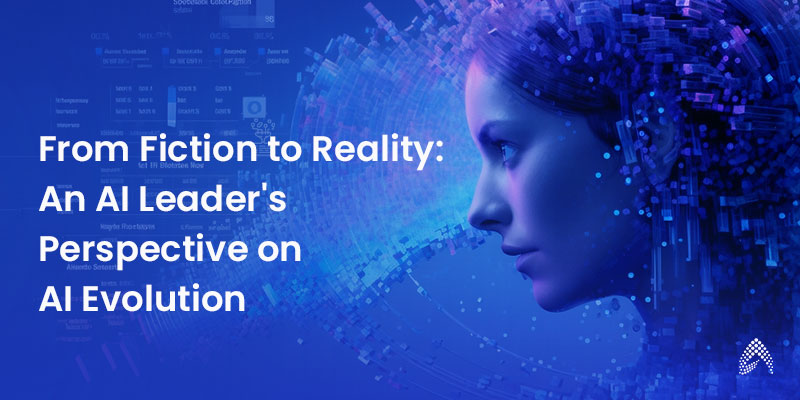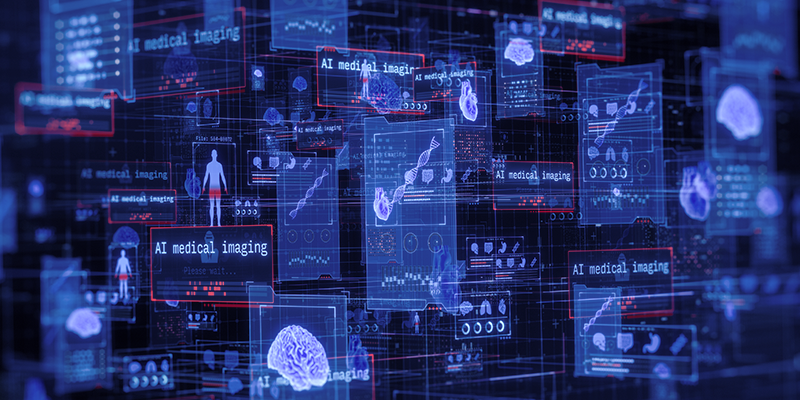From Fiction to Reality: An AI Leader’s Perspective on AI Evolution

From Narrow AI to Deep Learning: A Historical Perspective
In its earliest stages, AI was highly specialized and narrow in focus. Early AI systems were rule-based, relying on predefined instructions and logical steps. While this type of narrow AI could handle specific tasks like chess-playing or basic data analysis, it could not adapt or learn beyond its programming.
The real breakthrough came with the development of machine learning (ML), where systems could improve their performance by analyzing data and identifying patterns. However, it wasn’t until the advent of deep learning—powered by neural networks and inspired by the human brain—that AI took a quantum leap forward. This approach allowed AI systems to handle vast datasets and perform tasks such as image recognition, natural language processing, and autonomous decision-making, revolutionizing fields like healthcare, finance, and autonomous vehicles.
Current Applications of AI: Redefining Business and Society
Today, AI’s applications are expansive, impacting virtually every industry. Here are some key examples:
1. Healthcare
AI’s ability to analyze vast amounts of medical data has enabled early disease detection, personalized treatment plans, and predictive analytics. AI-powered diagnostics are improving accuracy, while robotic surgery and AI-driven drug discovery are transforming patient care.
2. Finance
The finance sector is leveraging AI for fraud detection, algorithmic trading, and personalized banking experiences. AI-driven risk management solutions have become essential for banks and financial institutions to assess risks in real time.
3. Manufacturing
AI in manufacturing is optimizing production lines with predictive maintenance and real-time monitoring. Through IoT integration, AI helps detect machinery issues before they occur, reducing downtime and increasing operational efficiency.
4. Retail and E-commerce
AI is powering personalized shopping experiences through recommendation engines and chatbots. From supply chain management to demand forecasting, AI is helping retailers better understand customer behavior and improve their operations.
5. Autonomous Systems
AI is at the heart of autonomous vehicles, drones, and robotics. Self-driving cars and drones are no longer just experimental; they are being tested for real-world applications, from transportation to delivery services.
The Future of AI: Where Are We Headed?
Looking ahead, AI is set to become even more integral to business and everyday life. Emerging trends and advancements will shape the future of AI:
1. AI and Edge Computing
The future of AI lies in moving processing power closer to where data is generated—at the edge. With edge computing, AI will process data on local devices instead of relying on centralized cloud systems, leading to faster and more secure decision-making in real-time applications such as autonomous driving and IoT.
2. AI and Quantum Computing
Quantum computing promises to accelerate AI research by solving complex computations that are impossible for classical computers. As AI models become more advanced, quantum AI will be able to solve problems in cryptography, material science, and complex simulations that were once thought impossible.
3. AI in Personalization and Hyperautomation
Hyperautomation, powered by AI, will streamline workflows across industries, reducing manual intervention and creating more efficient processes. AI will also continue to push the boundaries of personalization, enabling businesses to offer hyper-targeted products and services based on real-time user data.
4. Generative AI
One of the most exciting frontiers is Generative AI, where AI systems are not just analyzing or categorizing data but creating entirely new content—be it text, images, or music. Models like GPT and DALL-E are early examples of how generative AI is unlocking new creative possibilities.
Conclusion: The AI Leader's Role in Shaping the Future
As AI technology continues to evolve, AI leaders are tasked with not only understanding the technical advancements but also ensuring that AI is used responsibly and ethically. The future of AI holds immense promise, but realizing that promise requires a commitment to innovation, ethics, and collaboration across sectors. AI leaders must guide organizations in navigating the challenges and opportunities that AI presents, positioning their businesses for sustained success in the age of intelligent automation.
Are you ready to harness the power of AI for your organization’s growth? Contact us today to explore how AI-driven solutions can elevate your business and prepare you for the future.

President & CEO – Growth Markets




